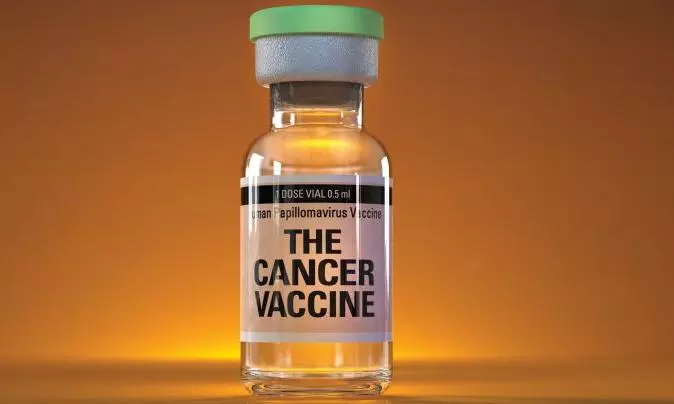
mRNA-based vaccines offer cures for cancer and prevention
text_fieldsIt would be groundbreaking in the field of medicine when a new set of vaccines that could act as a deterrent to a range of medical conditions like cancer were available by 2030 as a leading pharmaceutical promised.
In recent times, studies into vaccinations are demonstrating tremendous promise, according to a report published in The Guardian. Some researchers are even claiming that 12 to 18 months of progress has been achieved, which would have otherwise taken 15 years, thanks to the success of the Covid jab.
Dr Paul Burton, the chief medical officer of the pharmaceutical company Moderna, is optimistic about the future. He believes that his company will be able to offer treatments for all sorts of disease areas in as little as five years. This is particularly promising, given that Moderna was responsible for creating a leading coronavirus vaccine.
Moderna is currently developing cancer vaccines that target different tumour types. Burton has expressed his belief that their vaccine will be highly effective, saving many hundreds of thousands, if not millions, of lives. Additionally, he has stated that personalised cancer vaccines against multiple tumour types could be offered to people worldwide.
Burton's vision doesn't stop there. He has suggested that a single injection could potentially cover multiple respiratory infections, offering protection against Covid, flu, and respiratory syncytial virus (RSV).
Furthermore, mRNA therapies could be made available for rare diseases that currently have no drugs. These therapies work by teaching cells how to make a protein that triggers the body's immune response against disease.
Overall, the future seems promising, with medical advancements offering hope to many who have previously had none.
The use of mRNA molecules to make proteins has opened up new possibilities for the creation of vaccines. By injecting a synthetic form of mRNA into cells, the immune system can be stimulated to recognize and attack specific proteins.
In the case of cancer, this means identifying protein fragments on the surface of cancer cells that are not present in healthy cells and then creating pieces of mRNA that instruct the body on how to manufacture them.
To do this, doctors take a biopsy of a patient's tumour and sequence its genetic material in a lab to identify mutations that are unique to the cancerous cells. A machine learning algorithm is then used to pinpoint which mutations are responsible for cancer's growth, as well as which parts of the abnormal proteins they encode are most likely to trigger an immune response.
Once the most promising antigens are identified, mRNAs are manufactured and packaged into a personalised vaccine. This approach has the potential to be highly effective, as it enables the immune system to attack cancer cells without harming healthy cells. Overall, this is an exciting development in the field of medicine, with the potential to save many lives.






















